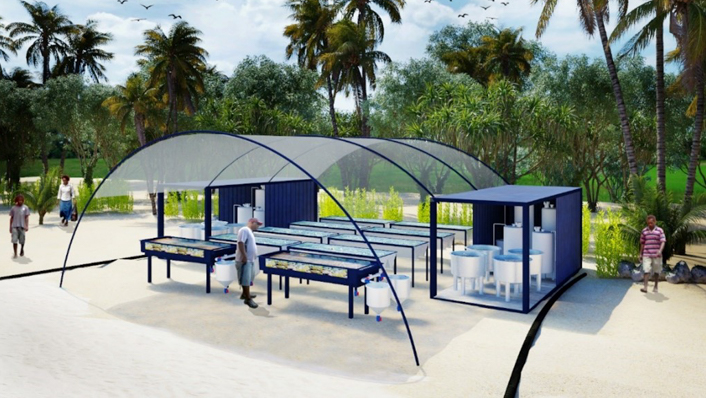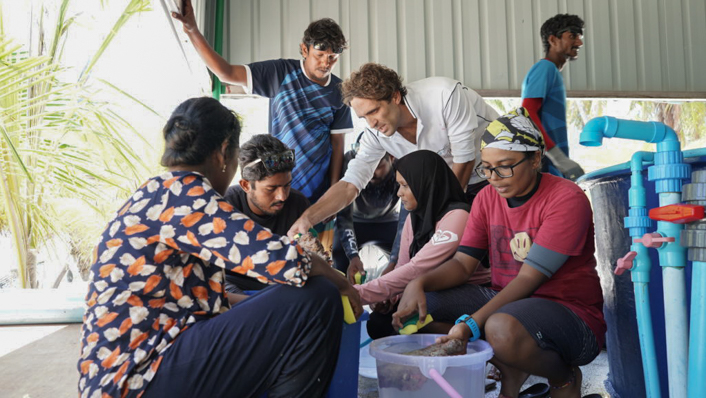Portable aquariums that can be set up in remote areas to each propagate up to 100,000 young corals at a time for reef restoration will be developed by the Australian Institute of Marine Science (AIMS).
AIMS is developing the containerised system, known as ReefSeed, with US$1.5M (A$2.3) support over three years from a G20 initiative to fast-track solutions to help protect the world's coral reefs.
It is being developed in collaboration with the Maldives Marine Research Institute (MMRI), to be used in the Maldives in 2025. The project also includes a partnership with CSIRO, which will investigate natural patterns of coral reproduction in the Maldives.
ReefSeed was among 14 projects from 20 nations, awarded funds this year by the Coral Research and Development Accelerator Platform (CORDAP) to help secure a future for coral reefs in the face of climate change and other environmental pressures.
AIMS Coral Reproduction and Aquaculture Research Team Leader, Dr Muhammad Abdul Wahab, said the portability of ReefSeed meant it could be set up next to a beach, drawing water from the ocean and using an independent power source for filtration, pumps, and temperature control.

"MMRI marine biologists and technicians will be working with us in AIMS' National Sea Simulator during our 2024 autumn spawning to learn how we conduct largescale coral spawning and production methods to generate coral larvae for restoration," he said.
"The conservation aquaculture methods were developed under the Australian Government's Reef Restoration and Adaptation Program (RRAP). The RRAP system is modular; coral larvae are settled onto sheets, which are economical for storage and transportation, before being assembled into deployment devices.
"These devices have been engineered to maximise coral survival rates, with protective features to limit mortality from grazing herbivore fish. They are used to deploy the corals on carefully selected reefs to help drive restoration."
Dr Abdul Wahab said multiple systems could operate simultaneously to meet the coral production targets for planned restoration.

CSIRO Senior Research Scientist Dr Christopher Doropoulos has been leading a team in the Maldives working with MMRI since 2021.
The team has been training local stakeholders in coral restoration techniques using coral larvae, acquiring fundamental knowledge about local coral spawning time, and surveying suitable habitats in which to deploy coral larvae.
"The Maldives is a coral-based archipelago exposed to global climate impacts," Dr Doropoulos said.
"Innovative projects such as ReefSeed facilitate a pivot for island nations around the world to build resilience for future sustainability."
In addition to funding the foundational work of Drs Abdul Wahab and Doropoulos, RRAP is also funding AIMS research into propagating stronger corals for the future.
CORDAP Executive Director Professor Carlos Duarte said two-thirds of the world's coral reefs had been lost due to human activity and 70-90% of the remaining coral reefs could disappear in the next 10-15 years if no action was taken.
"One in four marine species depend on coral reefs, and they provide food, income and coastal protection for one billion people," he said.
"For the first time, an entire ecosystem that supports millions of species and people may be lost at the hands of humans.
"Accelerating research and innovation is our chance to save corals… the awardees of the inaugural Coral Accelerator Platform have shown that there is still hope."
A new call for CORDAP proposals is open until 10 November 2023.






